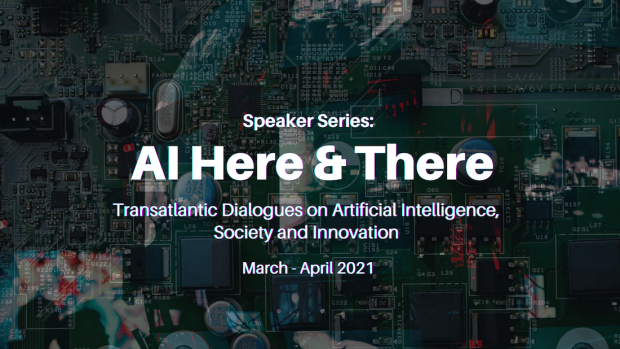AI and health: A future well beyond diagnostics

“AI Here and There: Transatlantic Dialogues on Artificial Intelligence, Society and Innovation” is a four-part series jointly organized by the Center for Responsible AI and the Consulate General of Switzerland in New York. The third event in the series asked how AI might impact the future of healthcare.
The discussion was moderated by Mona Sloane — who in addition to being a senior research scientist at the Center is an adjunct professor in the Department of Technology, Culture and Society at NYU Tandon and a fellow at the NYU Institute for Public Knowledge — and she opened by explaining that the AI applications currently being used in the healthcare arena range from technologies used to detect tumors and machine learning methods of discovering new drugs to algorithms that can assess a patient’s risk of developing a particular condition. She also outlined the various areas in which AI systems can exacerbate health inequities.
Sloane assembled an expert panel to discuss what might—and should—come next in the space of AI and health. If you missed it, the entire discussion (as well as the others in the series) can be viewed on YouTube, and in the meantime, you can read a few major take-aways below.
Professor Kadija Ferryman
NYU Tandon Industry Assistant
Professor Ferryman is a cultural anthropologist and bioethicist who studies the social, cultural, and ethical implications of health information technologies. Specifically, her research examines how genomics, digital medical records, artificial intelligence, and other technologies impact racial disparities in health.
She points out that as AI applications evolve, it’s important to make sure they’re both accurate and unbiased—and that they don’t exacerbate disparities in health. Even when they don’t work perfectly, if we’re paying attention we can use those “failures” to learn how racialization occurs in health data and how racial hierarchies are created.
Ambassador Amandeep Gill
Project Director/CEO of International Digital Health & AI Research Collaborative (I-DAIR), a Geneva-based global platform for enabling inclusive, impactful, and responsible research into digital health and AI for health
He asserts that the only way to enable inclusive, impactful, and responsible research into digital health and AI is to engage international stakeholders from the public, private, and academic sectors. Even though cultural differences can be hard to bridge, it’s vital that data for health be considered a fully global public good and that no one nation monopolize the creation of AI platforms.
Ziad Obermeyer
Distinguished Associate Professor of Health Policy & Management at the UC Berkeley School of Public Health
He explains that we’re now discovering that it’s important to train algorithms based on what patients are experiencing, not just on data from doctors. One example that illustrates this: researchers have found that Black patients and white patients whose radiology images show the same level of arthritis may exhibit different levels of pain. Black patients tend to report greater pain, which could be attributable to higher levels of stress or other such factors, and Obermeyer would like to see machine learning systems center that type of patient experience.
Philippe Menu
Chief Medical Officer of SOPHiA Genetics, a global leader in data-driven medicine, possesses a unique blend of medical expertise across clinical medicine, fundamental research in molecular biology, and business management consulting
Menu believes strongly that data-driven medicine can and must be democratized, and explains that SOPHiA AI’s mission is to maximize the value of genomics and radiomics data from all sources, thus furthering that democratization. Thanks to AI technologies, he says, data can be standardized, computed, and analyzed, to generate useful new insights that will shape a more equitable future in healthcare.
It’s not too late to register for the next events in the series:
- AI, Art, and Creativity April, 27, 2021, 12-1 pm
For more details, visit AI Here & There.
You can also read more about another new event series Sloane is convening, “Co-Opting AI: Public Conversations About Design, Inequality, and Technology.”




